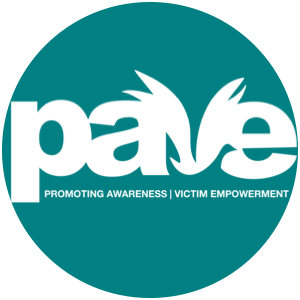Who are the true victims of the #MeToo Movement?
TW: sexual assault
Harvey Weinstein. Kevin Spacey. Woody Allen. Jeffrey Epstein. Larry Nassar. Bill Cosby. R. Kelly. Armie Hammer. Snoop Dogg. Ansel Elgort. Matt Lauer. Nick Carter.
What do all of these individuals have in common? They’re perpetrators of sexual violence—AKA “victims of the MeToo movement.”
In a 2018 interview with GQ Australia, actor Henry Cavill shared his fear to date post–#MeToo because he doesn’t want to be called a rapist (Miller, 2018). In response, political figure Candace Owens tweeted, “I love that this conversation is finally happening… Men are becoming scared to speak to women bc definitions have been blurred” (Owens, 2018).
Those in the public eye are not the only ones to share this feeling. One Quora user asks, “Should men everywhere be afraid of being #MeToo'd?” (Should Men Everywhere Be Afraid of Being #MeToo'd?, n.d.).
This may be a result of observing their favorite actors, musicians, and politicians facing the consequences of committing sexual violence. This may also be due to the idea of false reports.
Let me start with a little history…
In 2006, Tarana Burke, from the Bronx, New York, founded the #MeToo movement (Get To Know Us | Tarana Burke, Founder, n.d.). The birth of this movement can be credited to Heaven, a young girl Burke met while facilitating an “all-girl bonding session” at a youth camp she worked for. Heaven disclosed her survivor story with Burke, and while Burke separately wanted to tell Heaven that she related to her, she could not. And that was something she regretted, “I couldn’t even bring myself to whisper the words circling my mind and soul: ‘me too.’” After her experience with Heaven, Burke decided to share those two words–“me too”–with every survivor she encountered, and thus, the movement was born.
#MeToo is a movement for survivors led by survivors. It’s rooted in supporting survivor healing and community-based action to interrupt sexual violence (Get To Know Us | Our Vision & Theory of Change, n.d.),
Abusers like Harvey Weinstein and Jeffrey Epstein are examples of affluent, high-profile white men who thought they could abuse their power to get away with their crimes. These abusers are often protected by their wealth and resources. From these major cases and more, the #MeToo movement has given a voice to victims, held abusers accountable, and brought sexual abuse and rape to the forefront of America’s consciousness. According to a 2018 study on the impact of #MeToo, in the past 18 months, 417 high-profile abusers have been outed, 193 have resigned or been fired, and 122 have been suspended, while 69 haven’t been impacted (Helmore, 2019).
It can be difficult to see a public figure you admire making headlines for sexual violence. That’s normal. I’ve been there-–when survivors released accusations against Percy Hynes White, I was hurt and confused. It felt like a betrayal, a mistrust. He was not who I thought he was.
Nonetheless, public figures getting fired, arrested, or taken to trial does not make them the victim of the situation. This is not “cancel culture,” rather, this is abusers facing the consequences of their own actions.
It’s also easy to think, “Oh, this is probably a false report!” Fans don’t want to believe their idols are bad people, and they will defend, defend, defend… The victims are clout chasers. They want attention. They probably have never even met this person. There are a ton of false reports.
Sorry to burst your bubble, but you’re wrong.
In 2018, an estimated 734,630 individuals in the U.S. experienced threatened, attempted, or completed rape (Morgan & Oudekerk, 2019). However, only 25% were reported to the police. Thus, no one is jumping the gun to disclose their assault.
When it comes to false reports, rates are consistently very low—around 2% to 8% (Lonsway et al., 2009). Thus, it’s clear that society tends to overestimate the percentage of reports that are fake.
These statistics represent a survivor’s desire to be heard, understood, believed, and respected. No jumping to conclusions or immediate strong reactions—just empathy.
If you are in need of support or resources, PAVE is here for you. Visit Survivors.org for healing, community, and ways to find support.
Written by: PAVE Spring 2023 Intern Jessica Katz
Sources:
Get To Know Us | Our Vision & Theory of Change. (n.d.). me too. Movement.
Get To Know Us | Tarana Burke, Founder. (n.d.). me too. Movement.
Helmore, E. (2019, September 14). #MeToo: after Weinstein and Epstein, an 'unprecedented'
wave of books. The Guardian.
Lonsway, K., Archambault, J., & Lasik, D. (2018, 10). False Reports: Moving Beyond the Issue to Successfully Prosecute Non-Stranger Sexual Assault. National Sexual Violence Resource Center.
Miller, K. (2018, July 12). Henry Cavill says he's scared to date post-#MeToo because he doesn't want to be called a rapist. Is he alone? Yahoo!Life.
Morgan, R., & Oudekerk, B. (2019, September). Criminal Victimization, 2018. U.S.
Department of Justice, Bureau of Justice Statistics.
Owens, C. [@RealCandaceO]. (2018, July 12). I love that this conversation is finally happening.
I was ahead of the curve on this and took a ton of bullets for telling the truth. Men are
becoming scared to speak to women bc definitions have been blurred [Tweet]. Twitter.
Should men everywhere be afraid of being #MeToo'd? (n.d.). Quora.
